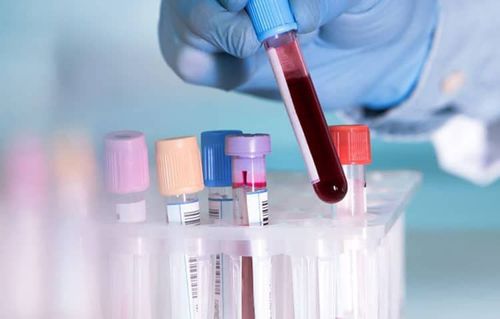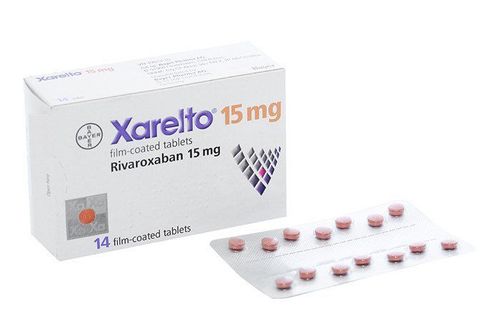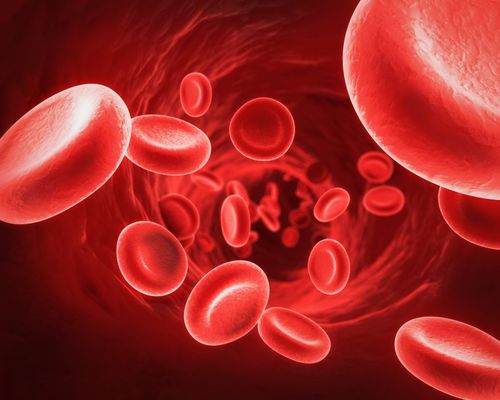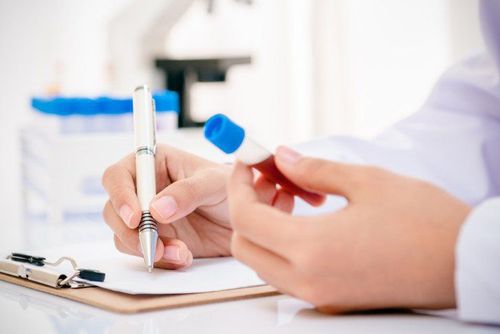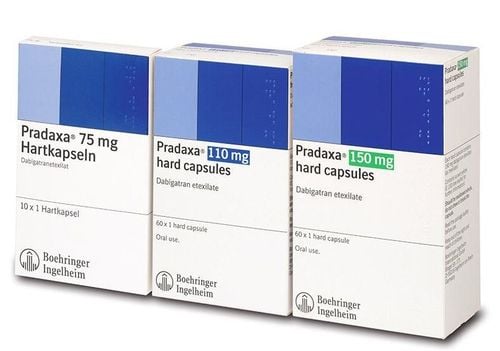This is an automatically translated article.
Blood test is an important test, indicated in many cases such as assessing inflammation in the body, infection, checking the risk of diabetes, cardiovascular disease, liver and kidney disease,...1. Basic types of blood tests
Blood tests play an important role in early detection of many dangerous diseases in order to treat the disease promptly and limit its complications. Some basic types of blood tests include:1.1 Total blood test A complete blood count test gives results about the number of red blood cells, white blood cells, and blood cells. Some specific properties of blood cells such as the size of red blood cells, the number of red blood cells occupying how much volume in the blood,... are also shown through this technique. From the obtained indicators, the doctor will detect the patient's health status, especially early diagnosis of anemia, blood clotting problems, blood infections, blood cancers, system disorders. Immune system,...
1.2 Blood sugar test Middle-aged people should have regular blood sugar tests to check blood sugar levels - a factor that helps doctors determine whether a person has diabetes or not. are not.
1.3 Liver enzyme test From the liver enzyme test with 2 basic indicators, alanine aminotransferase (ALT or SGPT) and aspartate aminotransferase (AST or SGOT), the doctor will detect a disease that causes cell damage liver damage, myocardial damage or pancreatitis no.
1.4 Coagulation test This technique is performed if a patient has a coagulation disorder suspected. For people who are taking warfarin or other blood thinners, blood clotting tests are done to periodically monitor the patient's health.
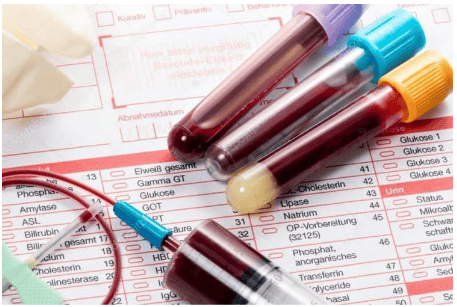
Xét nghiệm máu là loại xét nghiệm quan trọng, được chỉ định trong nhiều trường hợp như đánh giá tình trạng viêm trong cơ thể, nhiễm khuẩn,...
Total cholesterol; HDL - good cholesterol; LDL - bad cholesterol; Triglycerides in the blood. Usually, the person performing the test will need to fast for 8-12 hours beforehand.
1.6 Enzyme blood test Is a test that measures the level of specific enzymes in the body. These enzymes control chemical reactions in the body.
Enzyme blood tests help identify specific health problems such as heart attacks. If your doctor suspects a heart attack, the enzyme troponin - the enzyme the heart secretes when damaged - will be ordered to perform tests to check.
1.7 Blood tests for inflammation When there is inflammation in a part of the body, increased protein released from the inflammatory process circulates into the bloodstream. So, when you want to detect inflammation, doctors often order tests: Erythrocyte sedimentation rate (erythrocyte sedimentation rate), C-reactive protein, and plasma viscosity to detect an increase in protein in the blood. - signs of an infection.
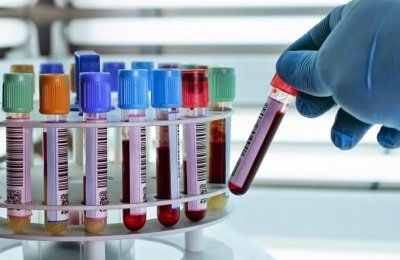
Khi muốn phát hiện viêm, bác sĩ thường chỉ định thực hiện các xét nghiệm: Tốc độ lắng máu, protein C phản ứng và độ nhớt huyết tương
2. What diseases can blood tests measure?
There are many diseases that can be detected through a blood test. During routine check-ups, most patients need to have these basic tests done. These tests help evaluate:Calcium levels: Abnormal calcium levels can be related to kidney or bone problems, malnutrition, cancer,...; Blood glucose level: Blood sugar that is higher than normal may indicate that the patient is diabetic or at risk of developing diabetes; Blood urea and blood creatinine: The presence of blood urea and creatinine in the blood may indicate a kidney problem; Electrolytes: The presence of abnormal electrolyte levels indicates that the patient may have kidney disease, dehydration, or some other underlying illness; Erythrocyte sedimentation rate, C-reactive protein and plasma viscosity: High results are indicative of inflammation such as abscess, arthritis, trauma, burns, cancer, myocardial infarction,... Speed erythrocyte sedimentation rate decreased in patients with heart failure, polycythemia vera, sickle cell anemia, cold hyperglobulinemia,...; Detecting other pathologies: Some social diseases such as hepatitis B, HIV,... or finding cancer markers. However, in some cases, it is necessary to carry out more specialized tests and diagnoses to confirm the diagnosis of the disease.
3. Who should have a blood test?
Blood tests are necessary for all subjects, all ages, from children to adults, the elderly. Experts recommend that each person should have regular blood tests to detect changes early and have effective prevention and treatment methods.Indications for blood tests for:
People with abnormal signs of body parts such as thyroid, heart, liver, kidney,...; People who want to determine HIV disease, blood cancer, need information on blood components or check cardiovascular function; Assess the effectiveness of the drug or antibiotic that the patient is taking; Performed in pregnant women to assist in screening for some problems in pregnant women and fetuses.

Phụ nữ mang thai sẽ được chỉ định xét nghiệm máu để sàng lọc một số vấn đề ở thai phụ và thai nhi
4. Some notes when performing blood tests
To obtain accurate blood test results, patients need to adhere to the following principles:Most blood tests are taken in the morning. In addition, some blood tests by the hour or by the cycle of the day, patients need to pay attention; Some tests require 8-12 hours of fasting. These tests are usually blood sugar, hepatobiliary, cardiovascular,...; Do not take any of these medicines before doing a blood test; Do not use stimulants such as alcohol, beer, coffee, tobacco, ... before taking the test. Failure to follow these guidelines may result in inaccurate test results.
Blood test is a minimally invasive and low-risk technique that helps detect many different diseases. When performing a blood test, the patient needs to strictly follow the instructions of the doctor so that the test process takes place quickly and obtains accurate results.
Periodic health check-ups help to detect diseases early, so that there are treatment plans for optimal results. Currently, Vinmec International General Hospital has general health checkup packages suitable for each age, gender and individual needs of customers with a reasonable price policy, including:
Health checkup package general Standard 2020 General health check-up package VIP 2020 General health check-up package Special 2020 General health check-up package Children 2020 General health examination package Work permit - Issuance of work permits Examination results of people sick will be returned home. After receiving the results of the general health examination, if you detect diseases that require intensive examination and treatment, you can use services from other specialties at the Hospital with quality treatment and services. outstanding customer service.
Please dial HOTLINE for more information or register for an appointment HERE. Download MyVinmec app to make appointments faster and to manage your bookings easily.




